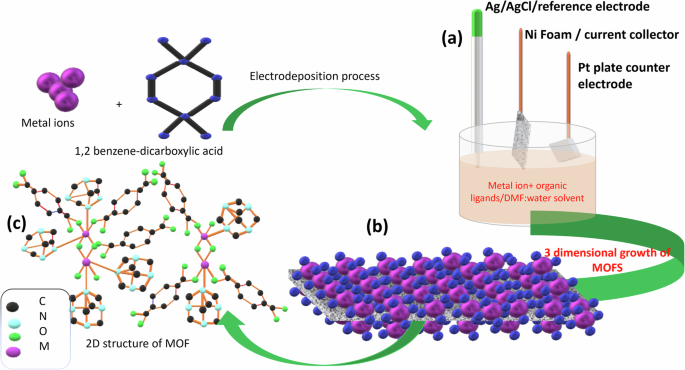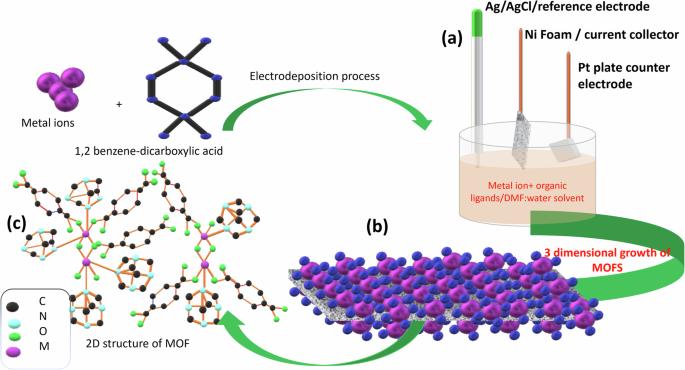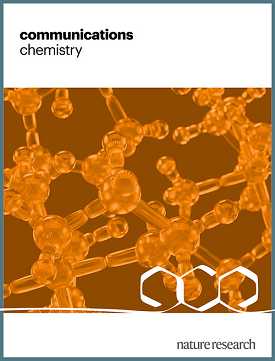Electrodeposition of porous metal-organic frameworks for efficient charge storage
IF 5.9
2区 化学
Q1 CHEMISTRY, MULTIDISCIPLINARY
引用次数: 0
Abstract
Efficient charge storage is a key requirement for a range of applications, including energy storage devices and catalysis. Metal-organic frameworks are potential materials for efficient charge storage due to their self-supported three-dimensional design. MOFs are high surface area materials made up of coordination of appropriate amounts of metal ions and organic linkers, hence used in various applications. Yet, creating an effective MOF nanostructure with reduced random crystal formation continues to be a difficult task. The energy efficiency and electrochemical yield of bulk electrodes are improved in this study by demonstrating an effective technique for growing MOFs over a conducting substrate utilizing electrodeposition. An exceptionally stable asymmetric supercapacitor is created when activated carbon cloth is combined with the resulting MOF structure that was directly synthesized via an electrochemical method resulting in 97% stability over 5k cycles which is higher than conventional processes. High performance in supercapacitors is ensured by this practical approach for producing MOF electrodes, making it a suitable structure for effective charge storage. Metal-organic frameworks (MOFs) are promising charge storage materials due to their high surface area, tunable pore size, and chemical diversity, but reliable and easy syntheses of MOF conductors are needed. Here, the authors report the electrodeposition synthesis of highly conductive cobalt MOF films and their application in a supercapacitor with a power density of 480 Wkg-1 and 5k cycle stability.


用于高效电荷存储的多孔金属有机框架的电沉积。
高效电荷存储是包括储能设备和催化等一系列应用的关键要求。金属有机框架具有自支撑三维设计,是高效电荷存储的潜在材料。MOF 是由适量金属离子和有机连接体配位而成的高比表面积材料,因此被广泛应用于各种领域。然而,创造一种有效的 MOF 纳米结构并减少随机晶体的形成仍然是一项艰巨的任务。本研究展示了一种利用电沉积在导电基底上生长 MOF 的有效技术,从而提高了块状电极的能效和电化学产率。当活性碳布与通过电化学方法直接合成的 MOF 结构结合在一起时,一种异常稳定的非对称超级电容器就诞生了,这种电容器在 5 千次循环中的稳定性高达 97%,高于传统工艺。这种生产 MOF 电极的实用方法确保了超级电容器的高性能,使其成为有效存储电荷的合适结构。
本文章由计算机程序翻译,如有差异,请以英文原文为准。
求助全文
约1分钟内获得全文
求助全文
来源期刊

Communications Chemistry
Chemistry-General Chemistry
CiteScore
7.70
自引率
1.70%
发文量
146
审稿时长
13 weeks
期刊介绍:
Communications Chemistry is an open access journal from Nature Research publishing high-quality research, reviews and commentary in all areas of the chemical sciences. Research papers published by the journal represent significant advances bringing new chemical insight to a specialized area of research. We also aim to provide a community forum for issues of importance to all chemists, regardless of sub-discipline.
 求助内容:
求助内容: 应助结果提醒方式:
应助结果提醒方式:


